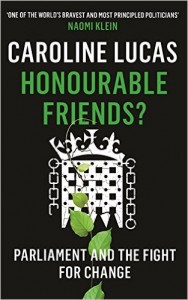Jason Hickel’s book ‘Less is More, How Degrowth will Save the World’ is I think the best yet critique of growth and of capitalism. He draws on ecology, economics, history and many other disciplines to chart how this pervasive and destructive ideology came into being and how it spells disaster for humanity. In the light of the Climate and Ecological Emergency the need to rapidly and radically change direction could not be more urgent. Hickel makes only general indications about what a post growth and post capitalist world might look like, but he does give us at least a glimpse of that possible future. (The book I am writing is much more detailed on that front.)
Economic growth, as measured by GDP, is the fundamental goal of nearly all governments. For most of our politicians and media it is taken as a ‘good thing’. It is the bedrock upon which capitalism as a system has been built, and without continuous growth capitalism would collapse. Because capitalism is so ubiquitous it is taken for granted without really being understood as a system and Jason Hickel is particularly strong in outlining exactly what capitalism is and why it is so destructive. People often think of capitalism as the right to trade and to use markets, but trade and markets pre-date capitalism by thousands of years. What emerged about 500 years ago was a system predicated on extracting value from trade to reinvest in ever larger scale trade. Value had to be continually extracted from the natural world and from people in order to have ever larger sums to invest in ever larger enterprises. Profit acquisition for investment replaced the earlier system of trade to acquire things for their usefulness. Stock markets grew and they depended upon profits to pay interest and attract investors in an endless cycle of continuous growth.
Questioning growth as a goal goes back decades, certainly to the early 1970’s, with Herman Daly’s ideas of a ‘Steady State Economy’, Donella Meadow’s ‘Limits to Growth’, ‘Blueprint for Survival’ and many others. Where Jason Hickel is particularly strong is on the insanity of constant growth projected very far into the future, given the impossibility to completely decouple growth from the material through-put of the economy and the associated waste and pollution. He is also very good in his connecting capitalism’s need for growth with its never ending need to colonize and exploit ever more aspects of people’s lives and of the natural world.
I wholeheartedly recommend this book. It is one of the best books I’ve read in years. The hardback edition came out last August and a paperback version is due to be published in a week or so, on 25th February.
There are writers such as Mark E Thomas, of the 99% organisation, who are still in favour of growth as an overall objective, but who distinguish between good growth, growth that is irredeemably bad and growth that can be transformed from bad to good. Other writers, such as Kate Raworth, author of Donut Economics, describe themselves as growth agnostic. What I’d love to see, and to participate in, is a debate between them. I think we would all agree on what sectors of the economy need to contract, which ones still need to grow and which ones can be transformed. The trouble is any discussion of radical economic contraction of any sectors of the economy is still taboo for most politicians and the media. That needs to change, as a matter of extreme urgency. As Greta Thunberg keeps reminding us, we are in a crisis, and it is about time we started treating it as a crisis. The obsession with endless economic growth on a finite and fragile planet is perhaps the greatest challenge, and the greatest opportunity. If you are not convinced then do read this excellent book by Jason Hickel and judge for yourself.



